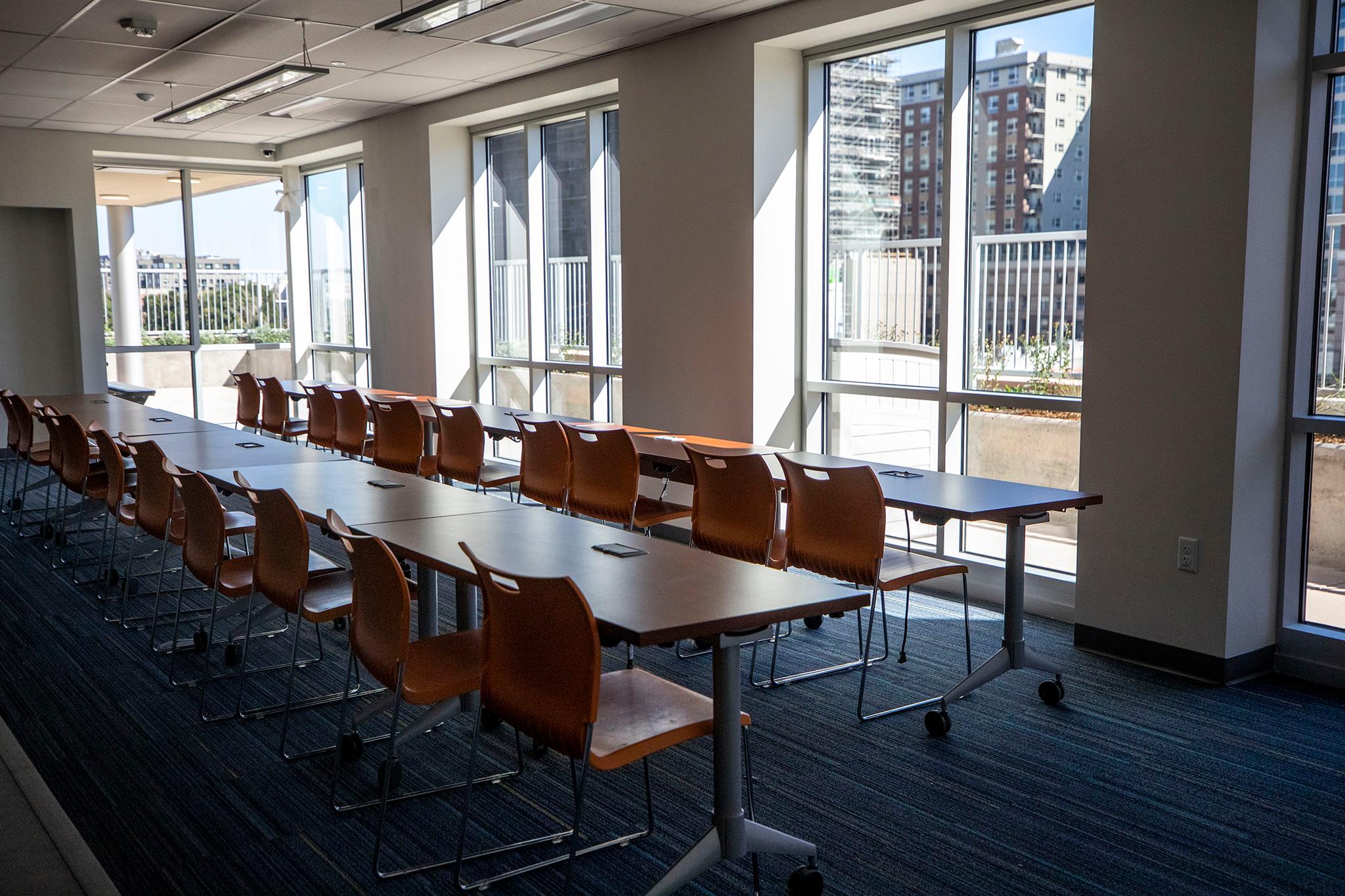Business is returning to DIA, which peaked at 69 million customers last year. But the pandemic's impact on travel is obvious to anyone who visits the airport, like I did recently.
About 166,000 passengers made their way through the airport's TSA checkpoints between June 28 and July 4, 2020. That's about a third of the traffic for the same time period last year. While the numbers are up significantly from mid-April, when only 12,000 people passed through the metal detectors and x-ray machines, the slowdown continues to shape everything at the airport, from which businesses are open to how fast construction projects are moving.
Airport officials and concessionaires are hopeful things will return to normal. But it's unclear whether that "normal" will resemble anything like the DIA of six months ago.
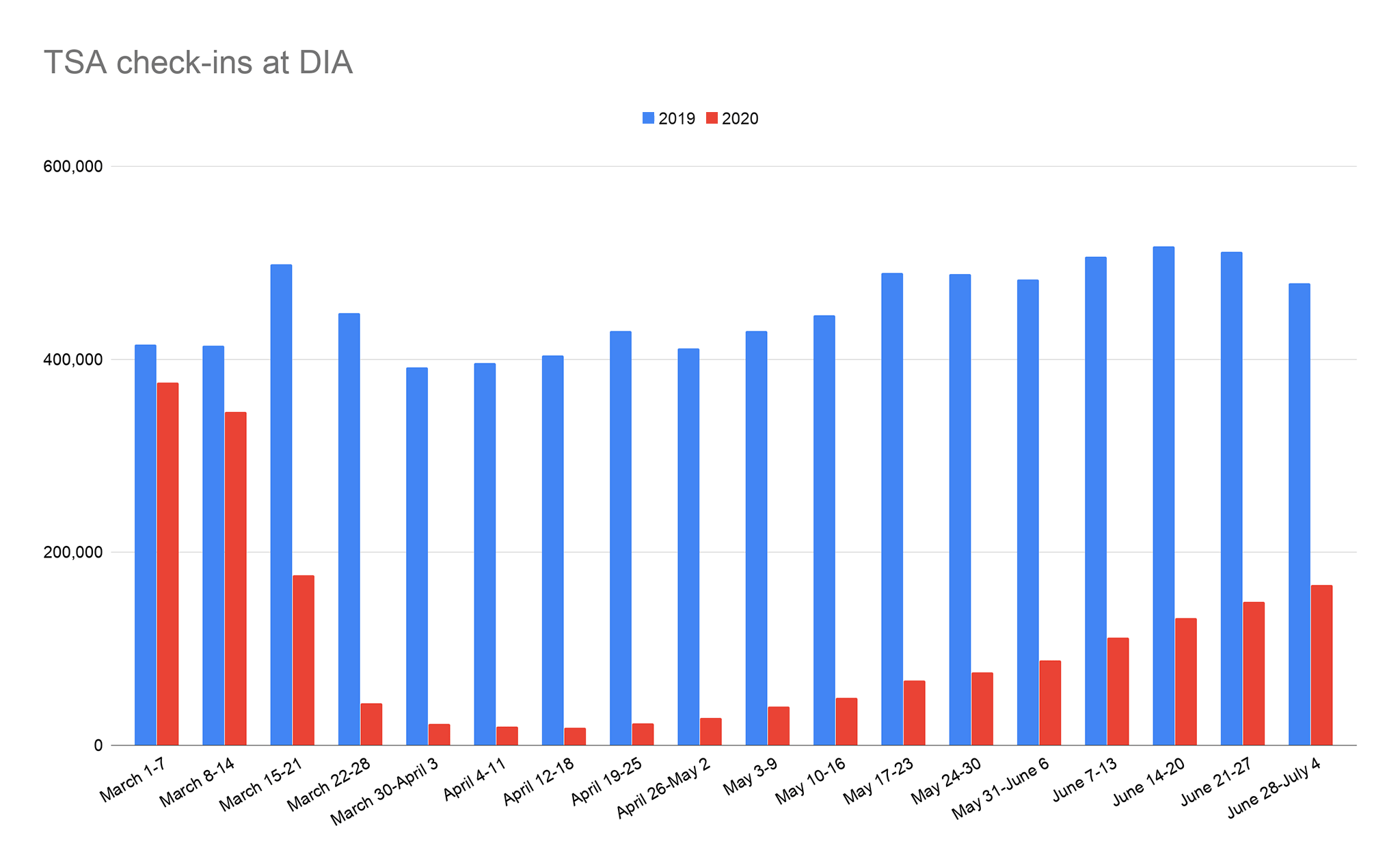
DIA is not a ghost town. But you're not likely to see many people flying for business.
While there is an alien painted on a column below DIA's public floors, spokeswoman Emily Williams couldn't take me to see it: A construction fence around a new baggage system blocked the way. But we did find a creature scrawled into an elevator wall.
"It feels pretty normal, like a down period in a day," Williams said as we headed toward a moving sidewalk.

B concourse was apparently much less crowded that day.
While it's tough to collect data on who, exactly, is flying right now, Williams said parking numbers suggest business trips are likely down. The garage closest to the terminal was abandoned. (Side note: terminals and concourses are different. If there's baggage claim and security, it's a terminal. Otherwise, it's a concourse.)
Jeff Price, professor of aviation management at Metro State University, said these travelers will likely continue to stay out of the skies. Both he and Williams noted that most companies have switched to virtual operations, and there may not be much incentive to go back to the days when a one-day trip across state lines was the norm.
"The real impact of this, of the pandemic, is the way we now communicate with people has changed. I think that's going to have a long-term impact on the airline industry," Price said. "They stand in their home with whatever bookshelf as a background, and people are used to that now."
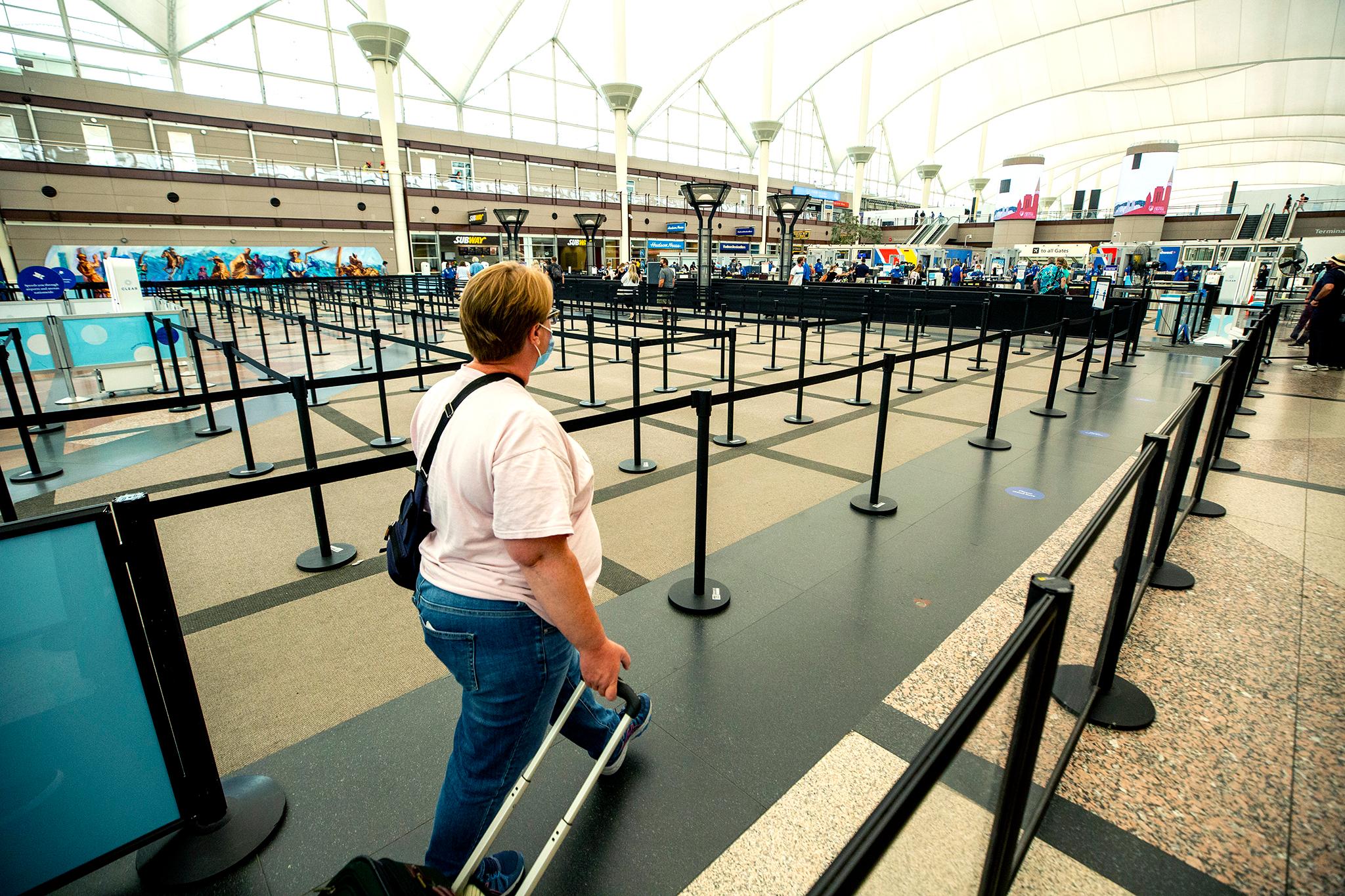
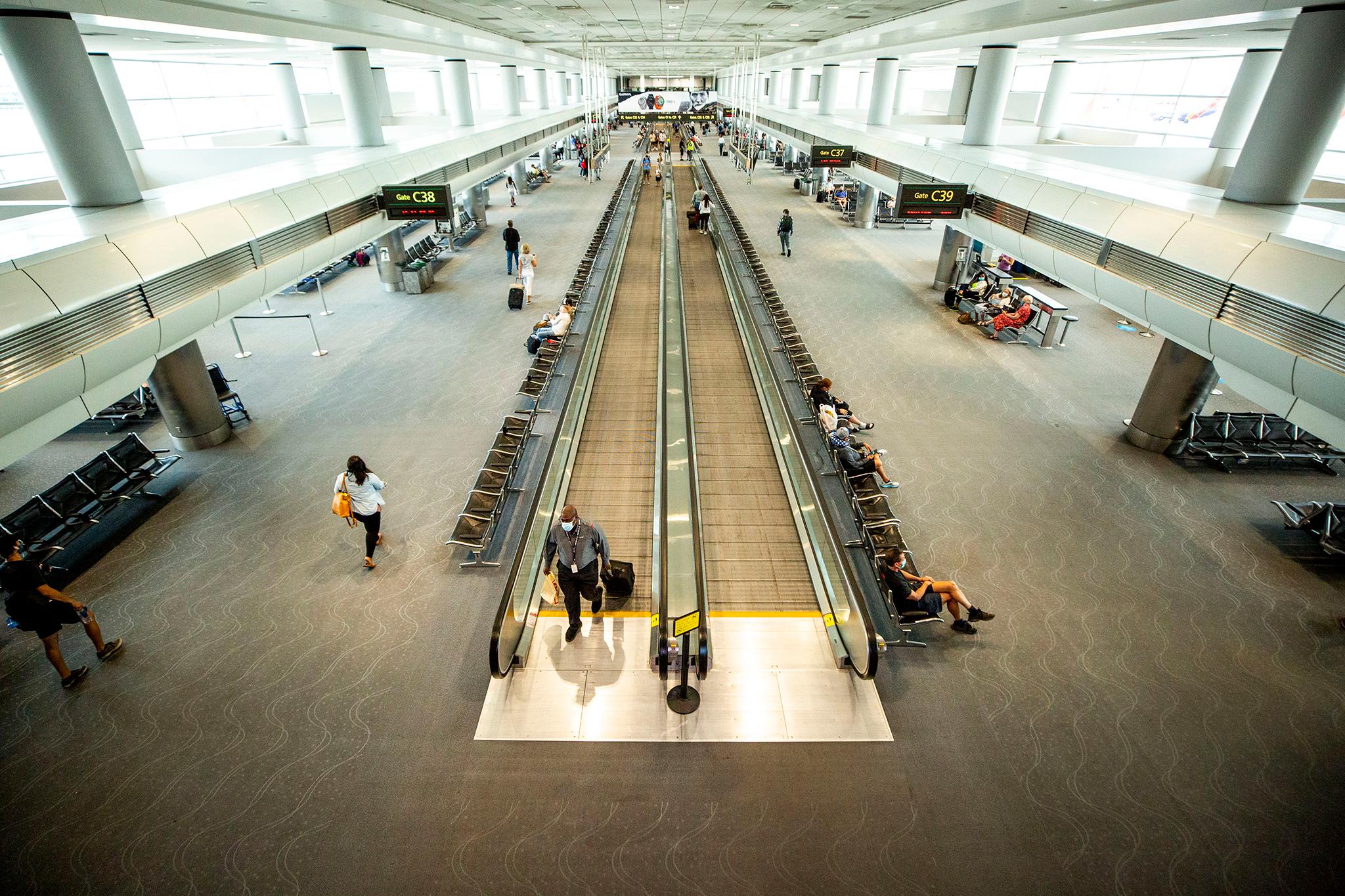
Nationwide, the industry has relied on business trips for as much as 40 percent of flights, he added. It will likely have to cope with a new normal as Zoom meetings continue to replace travel.
Price said airports can earn up to 50 percent of their revenue from parking alone. Before the pandemic, that cash flow was already taking a hit as more people took Ubers and Lyfts to airports. Business travelers, on the other hand, were more likely to splurge on expensive parking spots.
Williams said demand for flights to "leisure markets" has begun to increase since COVID-19 hit. And it's not just outgoing trips to the beach, either: "There's a lot of demand to come to Denver, for mountains and national parks."
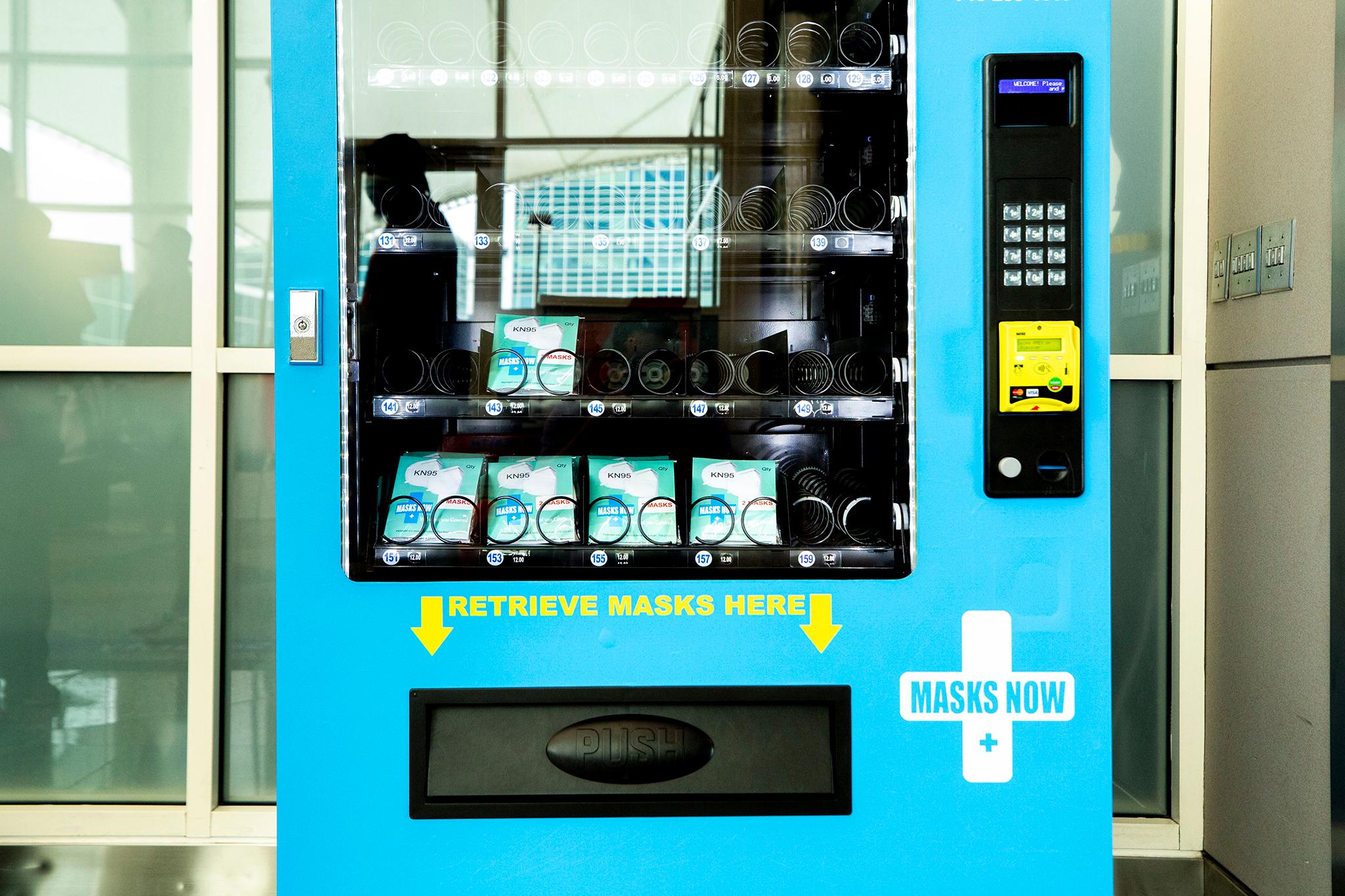
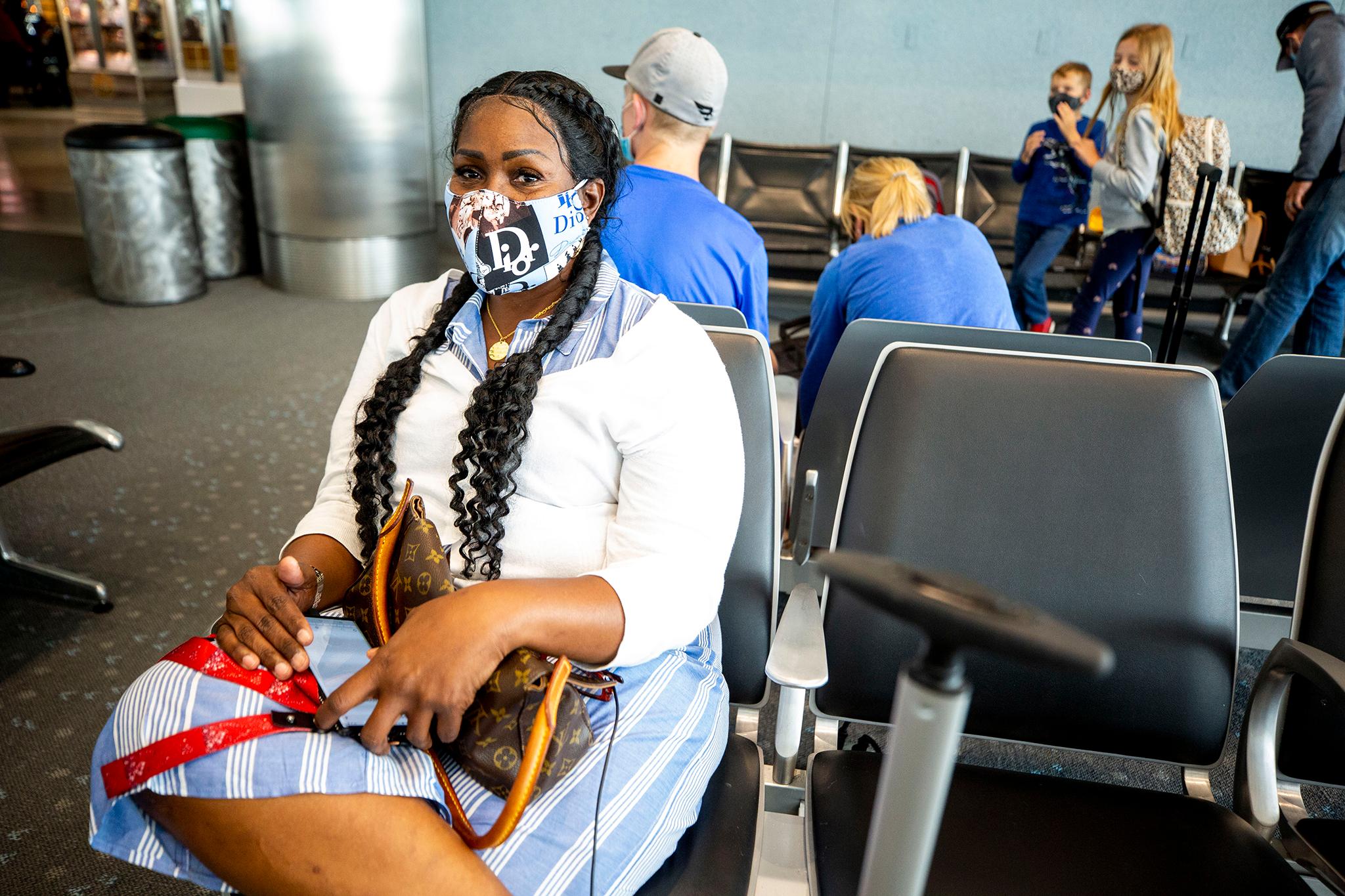
Cynthia Perry flew from Oklahoma City, her hometown, to California to see her grand kids. She was in the midst of a layover, waiting to return home, when I spoke with her.
She didn't mind wearing a mask on the plane. And because the Southwest flights she's been riding have not been full, she said her latest trip was comfortable.
"It was great, no problems at all," she said behind her Dior-branded face covering.
The passenger slowdown has helped DIA's construction projects speed along.
Construction walls from the airport's troubled Great Hall renovation bisect the main terminal. It's been almost a year since Denver canceled a 34-year contract with Great Hall Partners, a public-private partnership that ended in conflict.
While the project's completion is already years behind original estimates, DIA is projecting a rosy future. On the day Williams took me into the tunnels, the airport launched a dashboard to track its completion. All but one of the 17 progress boxes, from the $195 million budget to 10,648 "safe work hours," indicating these benchmarks are "meeting expectations," is colored an optimistic green.
Williams said the customer slowdown has made work a little easier. Most scheduling conflicts derive from access to curbs to easily drop materials off. With fewer drop-offs outside, crews can unload more materials during the day. They can also get away with noisier work during peak hours.
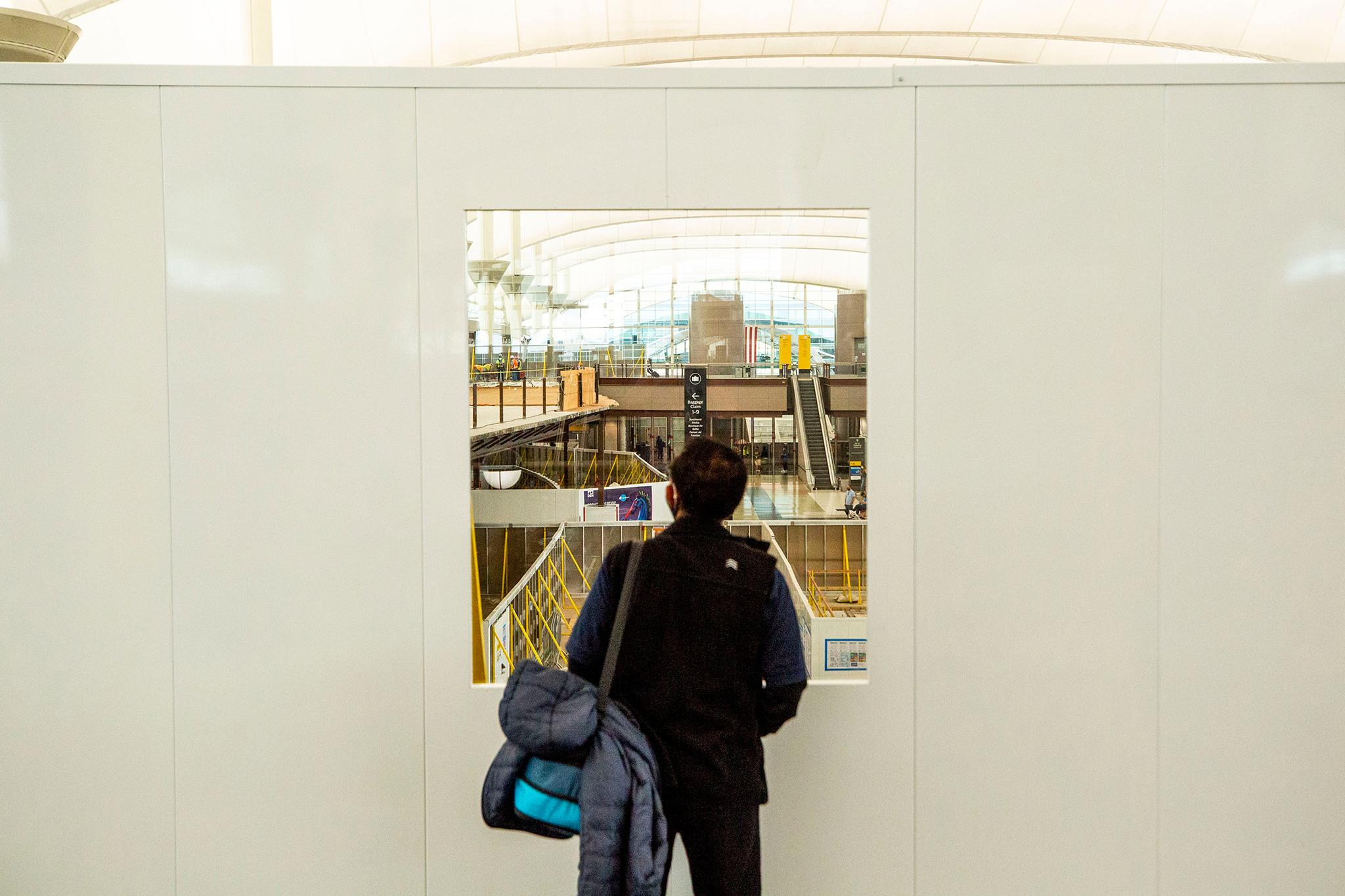
DIA is also getting 39 new gates. The initial construction is mostly finished, and the next phase will include new carpet, ceilings, bathrooms and moving walkways.
Williams said that project was originally expected to take five years. But fewer planes on runways has shaved a whopping three years off the original estimate. The project should be complete by 2024.
The pandemic has little bearing on the construction's funding, Williams added, because the money was allocated up front in bond measures.
Businesses inside DIA are still feeling the squeeze. It's unclear what that may mean for the airport down the road.
Dimmed storefronts dotted the C concourse. Williams said many concessionaires, which lease DIA's commercial spaces and work with businesses to set up restaurants and shops, have chosen to close since demand has been so low.
Josh Leblanc, regional director with concessionaire Paradies Lagardere, was touring the CNBC Smartshop he oversees when I met him. Some of his shops at DIA and other airports in his territory shuttered during the worst of the slowdown, and some of his employees were furloughed. But now they're coming back to work as things are beginning to open again.
"It's definitely picking up. We have to remind ourselves it's still quite a ways down from last year," he said. "It's come up so much compared to two months ago. It's finally starting to feel like normal. It still is about half of what it was last year, but we're seeing it continue to rise."
While he's hopeful that things won't bottom out again, he said he is taking things one week at a time. He usually creates one budget per operating year. "This year we've done seven," he said. "It just keeps adapting."
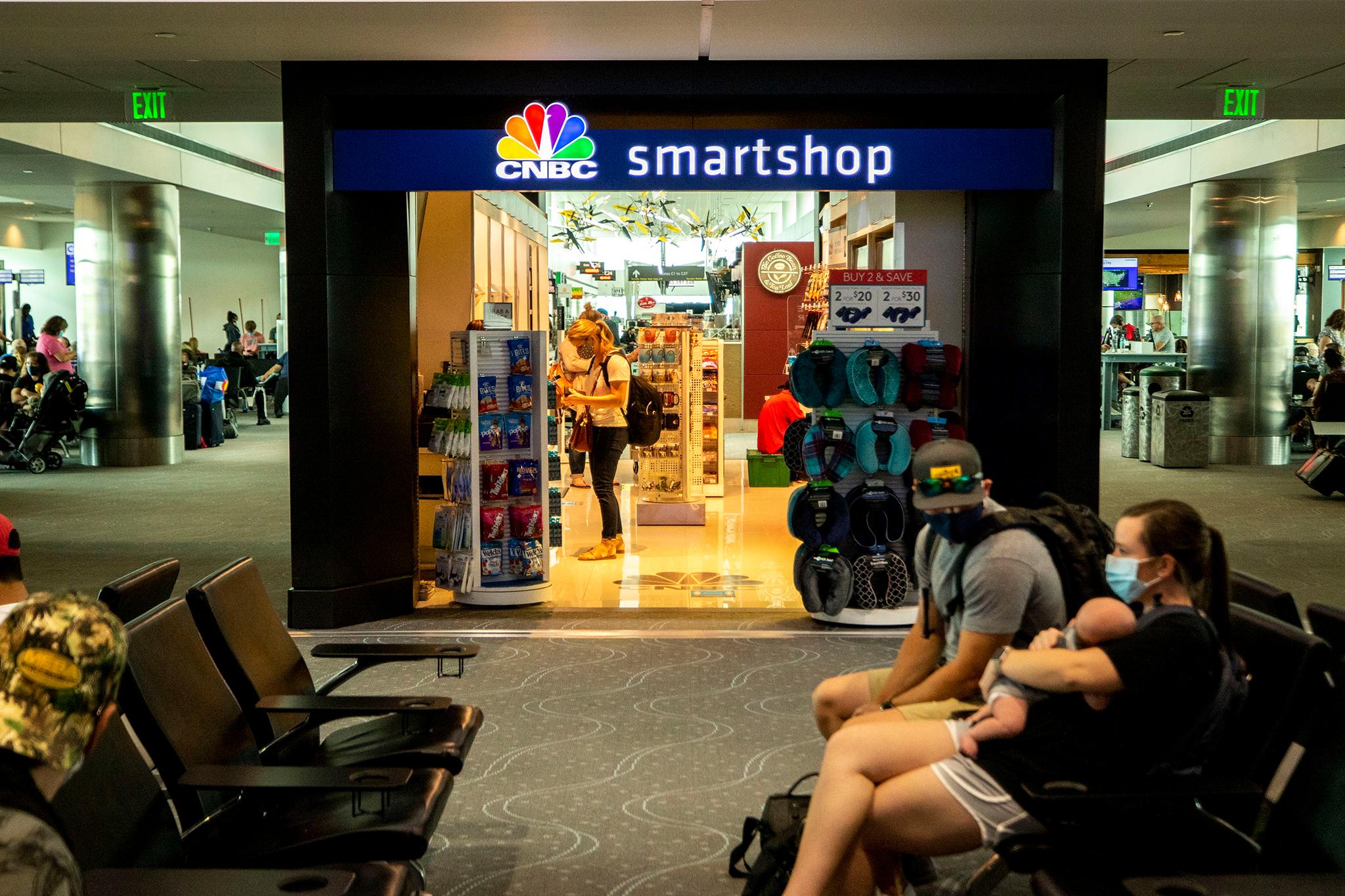
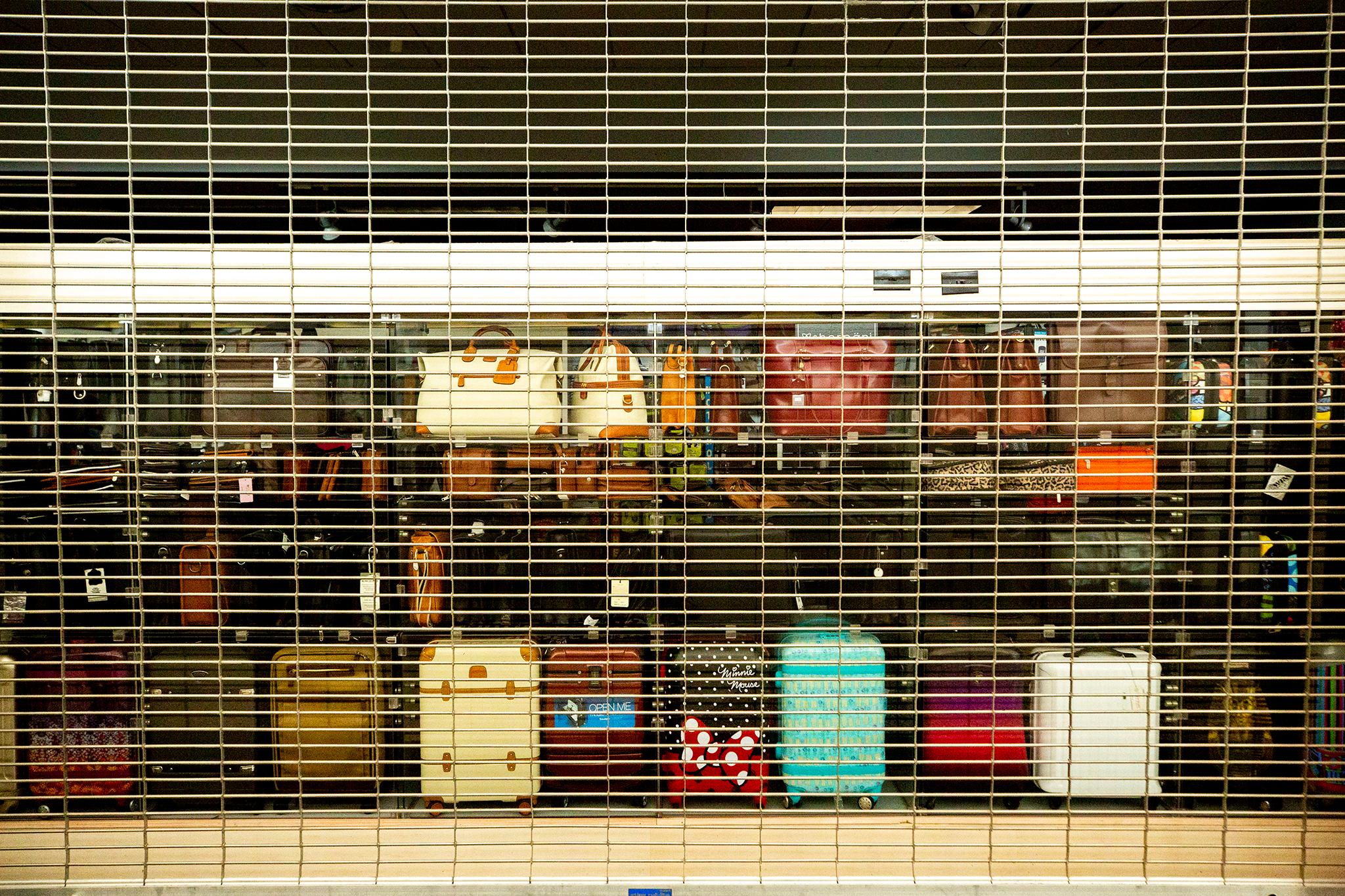
Williams said DIA has negotiated rent with its commercial tenants as revenues have fallen. Rent through the end of the year is now paid based on the percentage of sales. Concessionaires who decide to close entirely can do so without being penalized.
Price said that will likely be a huge loss for the airport. While he doesn't know how much revenue DIA makes from its tenants, he said airports tend to earn at least a quarter of their earnings from concessionaires.
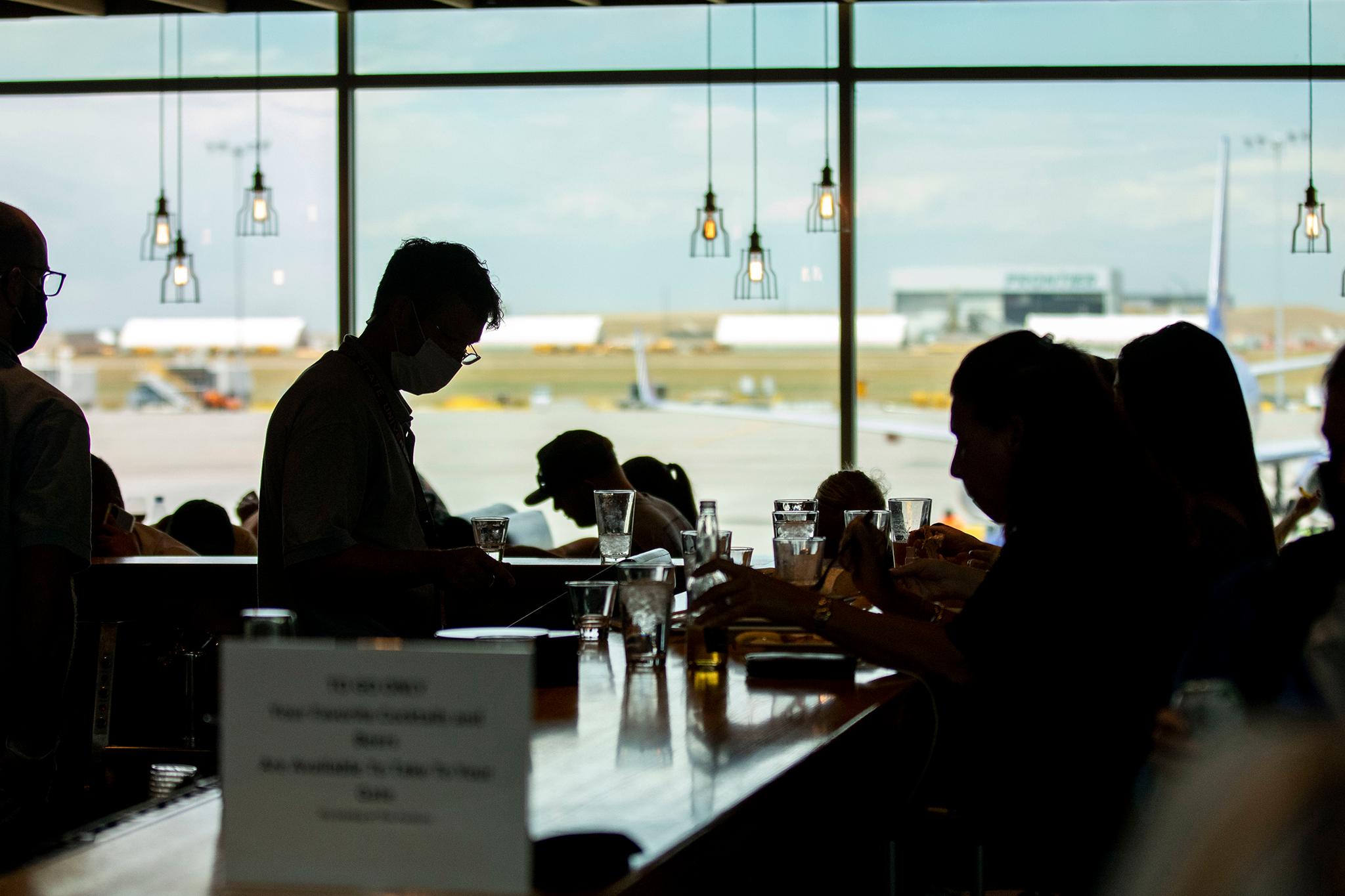
Meanwhile, United Airlines, which has made DIA a national hub, announced it would lay off up to 36,000 employees nationwide. But United signed a new ten-year lease for gates at DIA earlier this year, and a good chunk of those new gates under construction belong to the company.
"As long as the airlines are flying, those gates are going to be used," Williams said.
Price said layoffs are typical during a large-scale aviation downturn. Fewer customers means fewer staffers are needed to run things. The trouble, he said, will be ramping up quickly if people start flying en masse again. Laid-off workers might need new drug tests or security clearances, and that all takes time to complete. Every American airline except Southwest, he added, is currently restructuring their business models and work forces.
While a second wave of COVID-19 infections hasn't materialized in Colorado like it has in Texas and Florida, Price said the airline industry's natural interconnectedness means business at DIA is dependent on other cities.
Fewer flights out of Dallas or LA, for example, means fewer flights into Denver.
"The aviation industry is like the human body. You can't impact one part of it without impacting the others," he said.
And it's especially vulnerable to downturns: "So goes the economy, so goes aviation. It's the first to fall, and it's the last to recover."

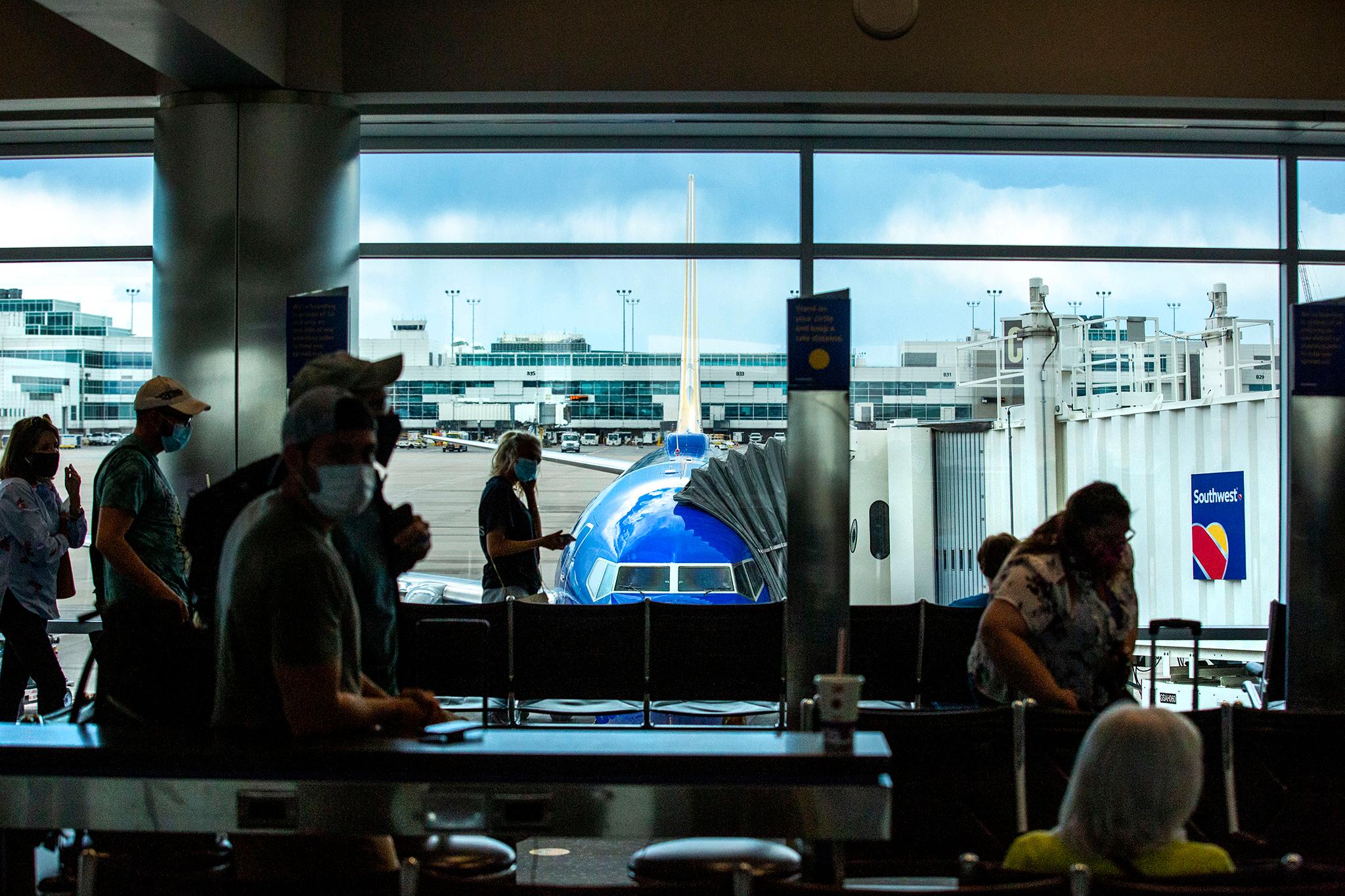
Price said DIA employees may also face layoffs, or since they're also city employees, workers could be "spun off" into other government departments. Denver has projected hundreds of millions in losses, and government employees outside of DIA have been furloughed.
Price expects a worst-case isn't likely for DIA, though.
"The good news is the airport has been well-managed for a long time," he said.
But we're not out of cloudy skies yet when it comes to the coronavirus. Or choppy waters, as Price put it.
"We're going through the rapids, coming through in an inner tube," he said. "We're not sure what the rest of the river looks like."











